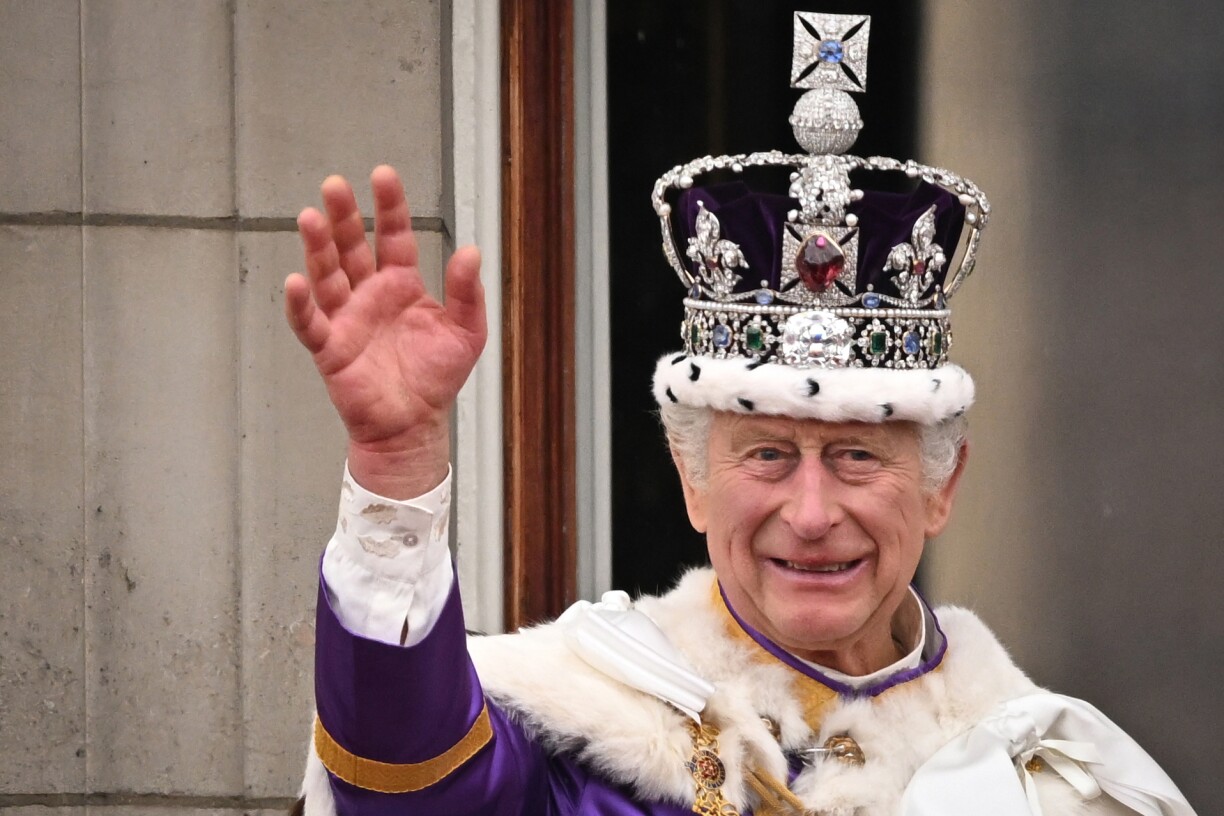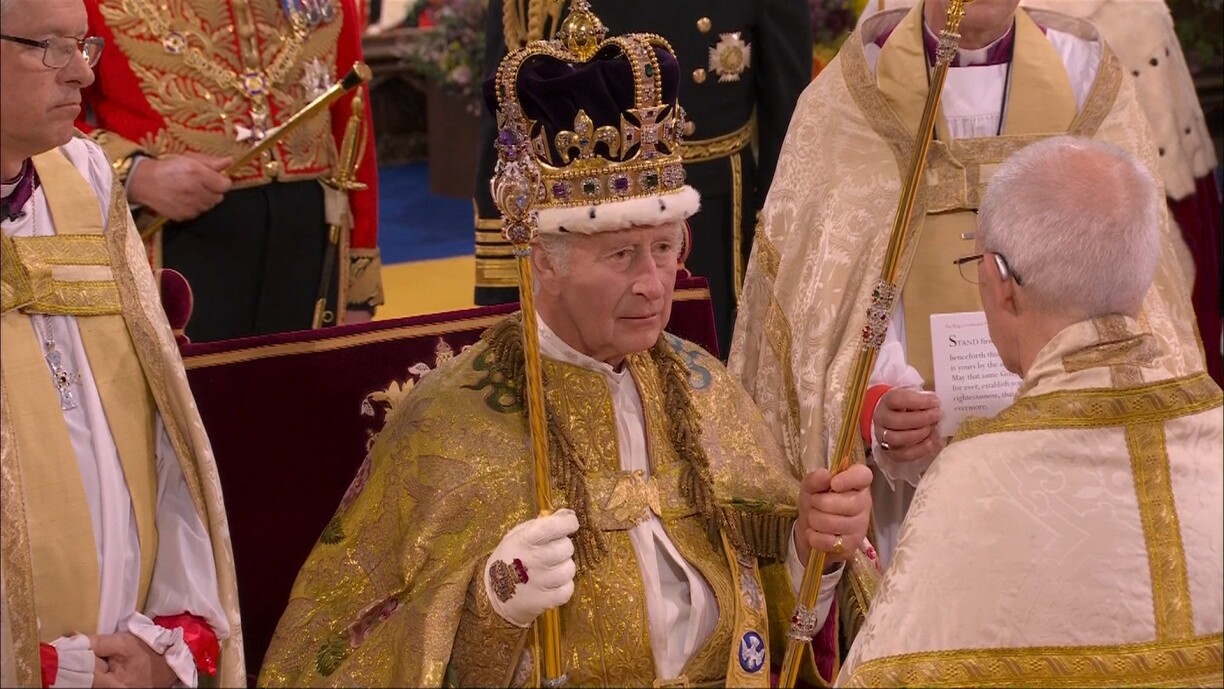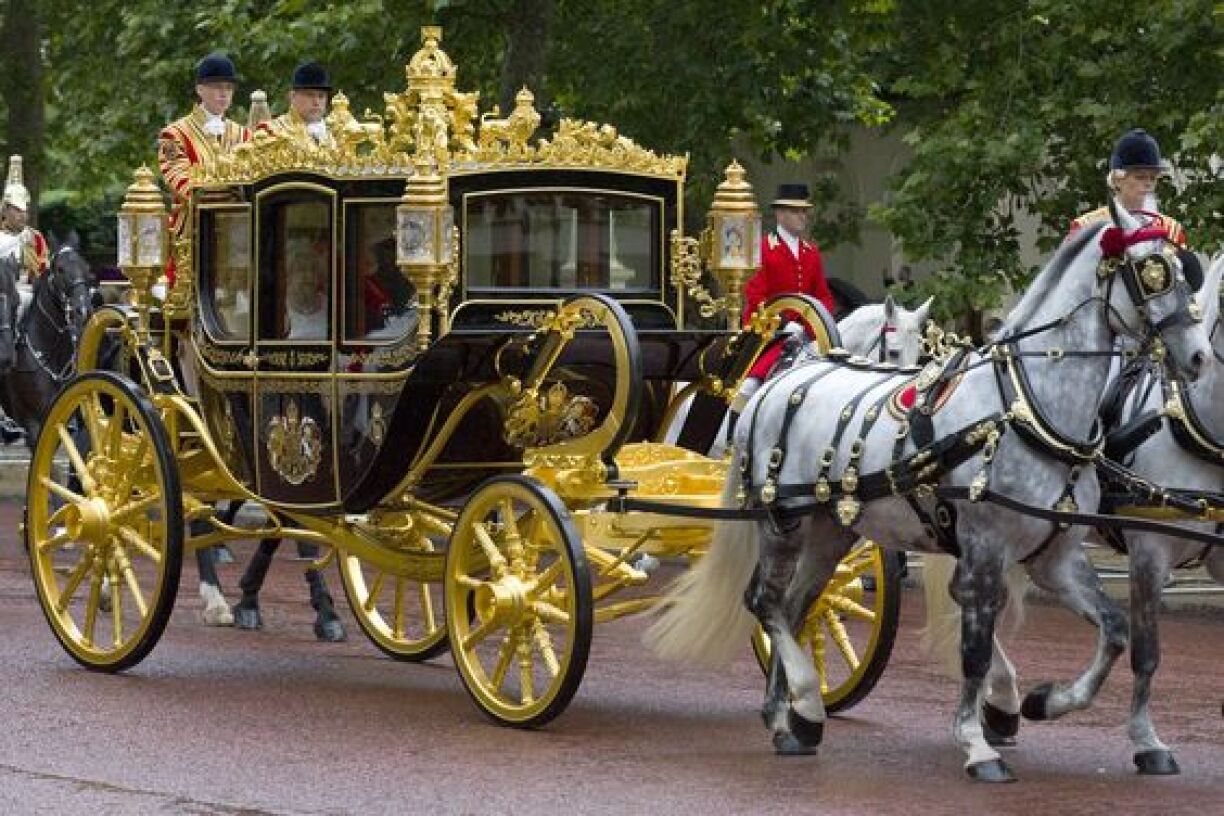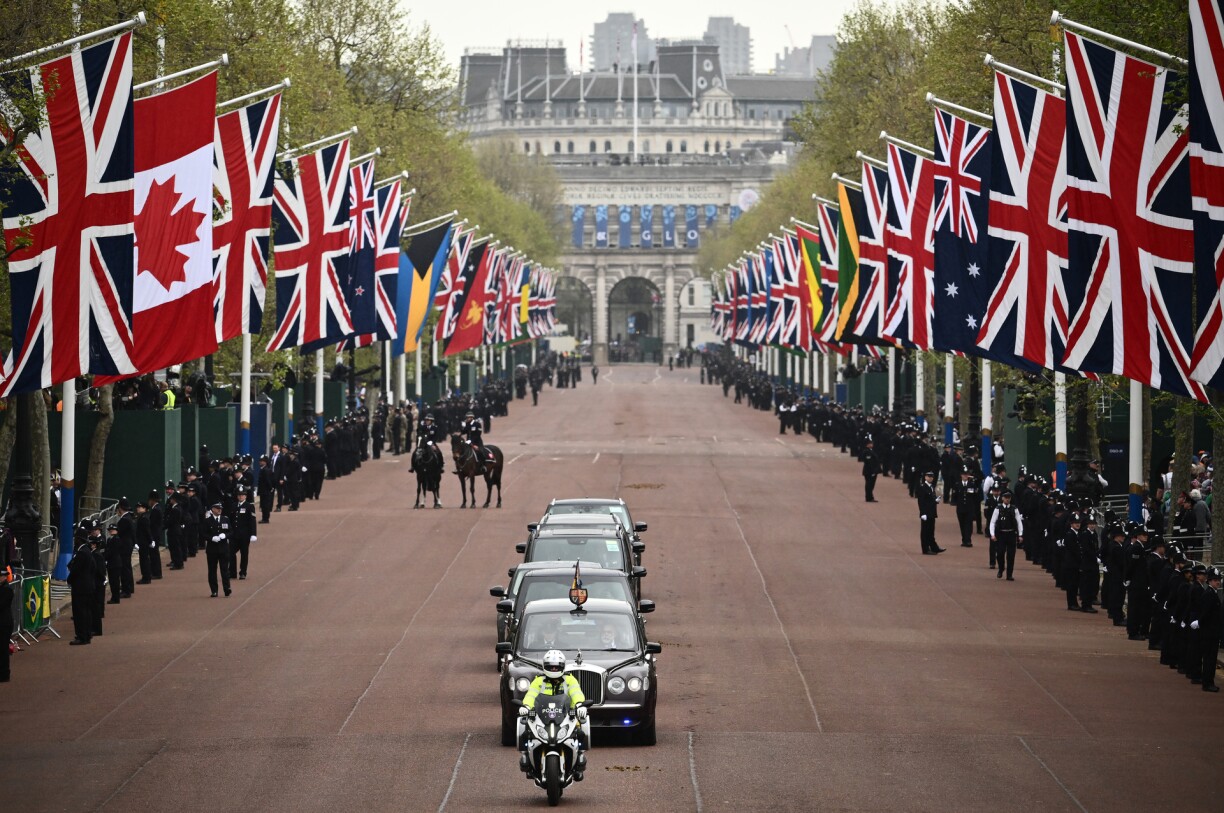
At 12:02 pm BST exactly, the Archbishop of Canterbury Justin Welby placed the solid gold St Edward’s Crown on Charles’s head as a sacred and ancient symbol of the monarch’s authority.
Cries of “God Save the King” rang out from the 2,300-strong congregation at Westminster Abbey and trumpet fanfares sounded at the climax of the solemn religious confirmation of his accession.
Guests at the Abbey included the Grand Duke and Grand Duchess of Luxembourg.
Outside, ceremonial gun salutes blasted out across land and sea while bells pealed in celebration at churches across the country.

The King and Queen left Buckingham Palace around 10.20am to go on a 1.3 mile long procession through central London travelling in the Diamond Jubilee State Coach, a newer State Coach that was built for Elizabeth’s Diamond Jubilee in 2012.

The procession passed through Whitehall and Trafalgar square. For a good viewing spot of the procession people had started queuing multiple days in advance. On their return their Majesties took the same route, so those who managed to grab a spot saw them pass twice.
But back in June 1953, on her way back from Westminster, Queen Elizabeth went on a five mile long procession passing through Piccadilly, Oxford Street, along Haymarket through Admiralty Arch before arriving back at Buckingham Palace.
The 2,000 guests arrived around 9am BST at Westminster. This is a seriously slimmed down guest list compared to the 8000 guests that had squeezed into Westminster Abbey in 1953. Notably absent from the guest list is Prince Harry’s wife Meghan Markle, Duchess of Sussex.

The service lasted two hours and ended around 1pm, making it about an hour shorter than the one of the late Queen.
For the music during the ceremony, the monarch had personally chosen 12 different pieces of music. Among them is the coronation anthem composed by award-winning musician Andrew Lloyd Webber. To pay tribute to his late father Charles III asked for Greek Orthodox music to be played. It was sung by the Byzantine Chant Ensemble.
The King became the first monarch to pray aloud at his coronation service. He’ll ask to be a “blessing” to those “of every faith and conviction.”
After the service, around 2.30pm, senior members of the royal family appeared on the Buckingham Palace balcony for a flyover featuring military helicopters and the Red Arrows exhibition team.
Shortly before the big occasion, the Palace announced that instead of Dukes, Duchesses and other aristocrats, it should be every citizen of the UK and the Commonwealth swearing allegiance to the new King. While intended as a modernisation, it rubbed many people the wrong way.
Following this statement, a video of a chant that erupted during a Scottish Cup match went viral on twitter. It clearly shows how some Britons reacted to this request.
To talk about all things coronation, Mark Evans of the news association Enex was a guest on the Sam Steen Show on Today Radio. He offers us a perspective on what Britons and Europeans actually think about it.
This lavish event isn’t without controversy in Great-Britain. According to a recent YouGov poll, 51% of Britons think this coronation should not be funded with public money.
Mark Evans thinks the monarch is keenly aware of this and it’s perhaps why he tried to size down the whole event. This also fits with Charles’s philosophy of slimming down the monarchy.
Although he did keep in a lot of the “traditional pageantry” and it’s certainly something that draws in crowds from Europe and the US, Mark Evans admits that the Royal Family has been “little bit of a soap opera”, lately.
To find out more about the coronation weekend and Mark Evan’s views on it listen to the full interview on RTL Play.
Mark Evans of ENEX pops in to the studio to let us know the important info on the weekend’s celebrations